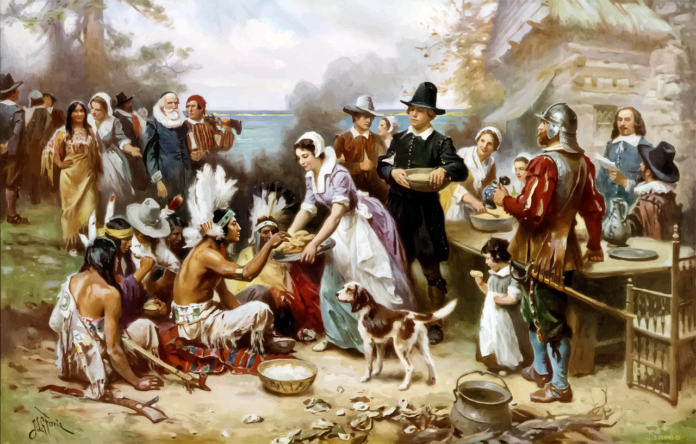As the crisp autumn leaves fall and families gather around tables laden with turkey, stuffing, and pumpkin pie, it’s a tradition deeply ingrained in the American cultural tapestry – Thanksgiving. Beyond the delectable feasts and football games, this annual celebration holds a rich history that stretches back to the early days of the American colonies.
Pilgrim Roots (1621): The inaugural Thanksgiving feast took place in 1621, when Pilgrims and Wampanoag Native Americans joined forces to celebrate a bountiful harvest. It wasn’t an annual event at that time; rather, it was a communal gathering expressing gratitude for the successful collaboration between settlers and indigenous people.
National Proclamation (1789): Fast forward to 1789, and George Washington issued the first national Thanksgiving proclamation. However, it was not an annual event, and the date varied from state to state. Thanksgiving began to take shape as a unifying tradition, fostering a sense of national identity.
Sarah Josepha Hale’s Campaign (19th Century): Enter Sarah Josepha Hale, the influential editor and author who campaigned tirelessly for a national day of Thanksgiving. Hale’s efforts paid off when, in 1863, President Abraham Lincoln proclaimed Thanksgiving a national holiday. This declaration set the stage for the modern celebration we know today.
Thanksgiving Becomes Official (1941): Thanksgiving had been celebrated on various dates in different states until President Franklin D. Roosevelt officially set the fourth Thursday in November as Thanksgiving Day in 1941. This standardization further solidified the holiday’s place in American culture.
Modern Traditions: Over the years, Thanksgiving has evolved, incorporating new traditions and reflecting the diversity of American society. Parades, football games, and the iconic Macy’s Thanksgiving Day Parade have become integral parts of the celebration. Meanwhile, the presidential turkey pardon and the National Thanksgiving Turkey Presentation add a touch of whimsy to the holiday.
Thanksgiving in the 21st Century: In the present day, Thanksgiving remains a time for family, gratitude, and reflection. It is a day when people come together to appreciate the blessings of the year and share in the warmth of companionship. However, the holiday is not without its complexities, as conversations around its historical origins and the treatment of Native Americans prompt reflection and discussions about the broader narrative of American history.
As we sit down to enjoy our Thanksgiving meals, let’s take a moment to appreciate the journey of this cherished holiday, recognizing its roots in unity, gratitude, and the enduring spirit of togetherness. From the humble beginnings with the Pilgrims to the present-day festivities, Thanksgiving stands as a testament to the resilience of tradition and the power of gratitude in shaping a nation’s cultural heritage.




